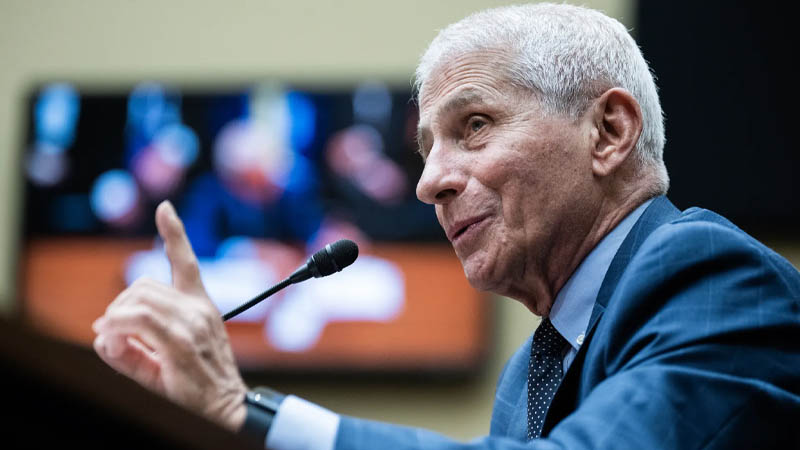During a contentious session before the House oversight committee, Dr. Anthony Fauci faced a barrage of hostile questioning, particularly from Representative Marjorie Taylor Greene. The hearing, which took place on Monday, focused on the origins of COVID-19 but quickly descended into personal attacks against Fauci, the U.S. medical figurehead during the pandemic.
Greene openly challenged Fauci’s credentials and authority, refusing to address him as a doctor and accusing him of “crimes against humanity” that should land him in prison. This provocative stance is part of a broader trend of personal attacks directed at public health officials.
Responding to the day’s events, Fauci expressed his concerns in an interview with CNN’s Kaitlan Collins. He described a pattern of increased threats to his safety following public criticisms. “Whenever somebody gets up, whether it’s a news media—you know, Fox News does it a lot—or it’s somebody in the Congress who gets up and makes a public statement that I’m responsible for the deaths of x number of people because of policies or some crazy idea that I created the virus—immediately, it’s like clockwork, the death threats go way up,” Fauci explained.
The gravity of these accusations seems to resonate with a particular segment of the populace, inflaming passions and prompting extreme reactions. “So that’s the reason why I’m still getting death threats. When you have performances like that unusual performance by Marjorie Taylor Greene in today’s hearing, those are the kinds of things that drive up the death threats because there is a segment of the population out there that believe that kind of nonsense,” he added.
But Greene was not alone in her aggressive approach. Other GOP lawmakers, including New York Representative Nicole Malliotakis and Arizona Representative Debbie Lesko, attempted to tie Fauci to conspiracy theories without substantive evidence. Committee Chair James Comer and Ohio Representative Jim Jordan also contributed to the combative atmosphere by limiting Fauci’s responses and posing irrelevant questions, respectively.
Fauci, who has testified before Congress hundreds of times over his four-decade career, noted a significant escalation in hostility both within the halls of government and across the nation. This, he lamented, detracted from the committee’s critical role in safeguarding public health ahead of potential future pandemics. Fauci’s reflection on the level of vitriol displayed during the hearing underscored his concern for both personal safety and the broader implications for American health governance.


